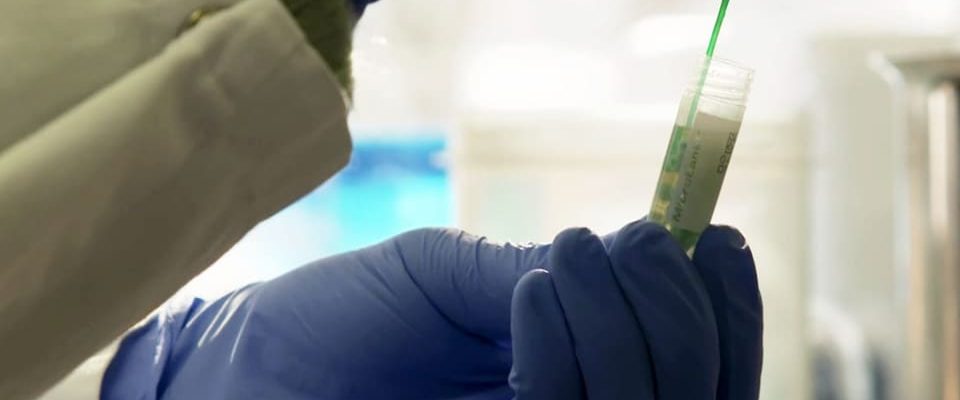Contents
In order to preserve the endangered microbial diversity of the intestines, thousands of faecal samples are deep-frozen in a Swiss bunker.
“The human chair is absolutely fascinating, I can tell you that.” Adrian Egli’s eyes light up when you ask him about his favorite scientific topic at the moment. The medical microbiologist is holding a small sample box containing a dozen small tubes. Each of these contains a sample of feces:
“These are samples from healthy donors, thanks to which we want to find out how the microbiome is optimally stored.”
Legend:
The fecal samples are kept in small tubes.
Nano
At exactly minus 80 degrees Celsius, around 1,000 samples are already stored in a freezer in the basement of the Institute for Medical Microbiology at the University of Zurich. Another 1,000 will soon arrive, from Laos, Ethiopia and Puerto Rico. But even that will only be the beginning. Because in a good ten years, according to the goal of an international research team of around 40, millions of fecal samples should be stored in a high-tech safe, the so-called Microbiota Vault.
Endangered diversity in the gut
For around ten years, the human microbiome has been the focus of medical research, which hopes to find novel therapies in the fight against serious diseases such as cancer, obesity or diabetes. In general, the following seems to apply: the greater the diversity of microorganisms in the intestine, the better for humans.
We live in a very western environment, with a lot of stress and a less than ideal diet.
But this diversity is under threat, says Adrian Egli, especially in industrialized society. “We live in a very western environment, with a lot of stress and a less than ideal diet. This means that the bacteria in us also eat unhealthily.” Another decisive negative aspect is the use of antibiotics, which can lead to the virtual extinction of bacteria.
More than twice the variety
The microbiome of people who still live far away from the industrialized world could be particularly valuable for future research. This is confirmed by Pasquale Vonaesch, a microbiologist at the University of Lausanne: “You could see that they have other bacteria. Bacteria that we lost.” In addition, these people have less of those bacteria that often lead to diseases.
studies American colleagues have shown that, for example, members of a Venezuelan Yanomami society have more than twice the biodiversity of bacteria, fungi and viruses in their intestines than healthy Americans. The microbiome researchers now want to preserve this diversity for future generations.
Adrian Egli is certain that there is still so much to discover: “We don’t yet know exactly which bacterium plays which role in ensuring that we are healthy or become ill. But if these bacteria die out, we can no longer use them to do us any good.”
Sale of bunkers stopped
The microbiologist is therefore strongly committed to researching and preserving them. When looking for a suitable location for their microbiome safe, the researchers found what they were looking for in 2021: a disused Swiss army bunker – at that time still dirt cheap. But nothing came of this deal for the time being, because with the war in Ukraine, the Swiss army stopped selling bunkers indefinitely. The researchers are now looking for an interim solution to preserve the important intestinal diversity.
